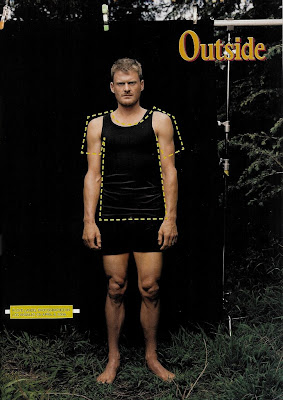
Last Thursday, Floyd Landis and his advisers filed for a state of execution of his cycling career to the Court of Arbitration for Sports (CAS). Make no mistake about it, this appeal is more than an attempt to re-claim the yellow jersey that was officially handed over to Oscar Pereiro (Caisse d'Epargne) earlier this week, it is an attempt to save his livelihood. In the end, that's all that may be salvaged from this seemingly never ending saga.
The Appeal.
It sounds like a title befitting Franz Kafka. Since that memorable and now infamous Stage 17 of the 2006 Tour de France, Landis' story has some parallels to that of the character Josef K in Kafka's novel The Trial.
In The Trial, Josef K, or simply K, awakens one morning and for reasons never revealed, is arrested and subjected to the judicial process for an unspecified crime.
As Landis awoke the Monday after winning the 2006 Tour, he was informed of a possible non-negative result. Through a winding unspecified judicial process, arbitrators decided that those initial condemning results were obtained by shoddy and unethical means. Yet, like K, Landis is now faced with an existential crisis [Landis’ related to his cycling mortality].
Although a set of backup tests revealed the presence of exogenous testosterone, I cannot shake the feeling of injustice. [Landis’ verdict and K's plight in The Trial having been sadistically fashioned by the same hand [of fate].
Should Landis, or K, have ever been brought to the point of choosing how their respective existence concludes?
That answer is perhaps central to the upcoming Landis appeal. But unfortunately for Landis and his backers, this judicial process is not about who is right or wrong, or what is logical. This process is about authority and winning. And in that arena, Landis cannot win.
When I first heard of his decision to appeal to the CAS, I struggled to find a reason why Landis would subject himself and his family to what amounts to a quest for something unattainable [the Holy Grail of reversing a doping charge]. By undergoing the appeal process, Landis has essentially positioned himself to receive that "definitive" NO that a child who pushes an agenda too far often receives from their parents.
Why didn't Floyd merely accept his fate and move on with life, as his mother suggested?
If you were faced with a complete loss of your livelihood, a death of sorts, to what extremes would you go to prevent it?
Again, in Landis’ case he may only be in search of a reprieve and not a complete over-turning of his verdict. His two-year band from cycling will be complete as of January 2009. The appeal to CAS may just get him back to racing next year.



4 comments:
>>Why didn't Floyd merely accept his fate and move on with life, as his mother suggested?
If you were faced with a complete loss of your livelihood, a death of sorts, to what extremes would you go to prevent it?<<
Why do you think? He is innocent!!!!
that's the point anon..."the system" of justice in both the novel and in cycling doesn't seemed concerned with innocence.
so in this example each probably needs to "take control" of his own fate and not leave it up to others to decide
I'm with you Len, on the same page. This kind of protracted ordeal is soul-sucking. It has to be a bread and butter issue. I certainly hope he gets what he's seeking - and that there's something left of his spirit when it's over. Referencing Kafka, Nice.
He doesn't give up because he is innocent but, also because he is fighting to make the system itself work the way it was supposed to. This case is potentialy the Dred Scott of cycling.
Post a Comment